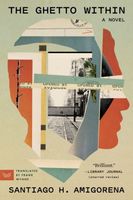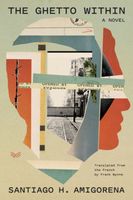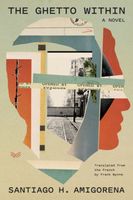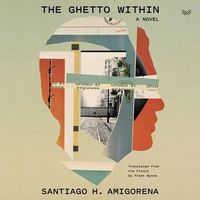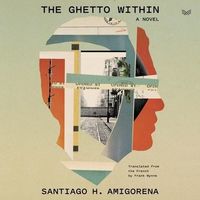- Welcome to FictionDB, Guest
- | My Account
- | Help

The Ghetto Within — Santiago Amigorena

Santiago Amigorena weaves together memory, history, and imagination to tell the story of his Jewish grandfather, a Polish immigrant in Argentina, and the guilt he experiences when he is unable to help his family leave the Warsaw ghetto in this powerful novel about identity, loss, and the unshakable power of love -- a critical sensation in France that marks his American debut.
In Buenos Aires, the afternoon of September 13, 1940 was rainy and the war in Europe so remote that one might still have thought it was peacetime.
Buenos Aires, 1940. Three friends, fellow Polish exiles, meet at a café. What caused them to flee Europe by boat a few years earlier when others facing the same danger did not? And amid this relocation, what should they call themselves now? Jewish? Pole? Argentinian? They will mull over these questions of identity and allegiance for the rest of their lives.
Vicente Rosenberg is but one of many European migrants making a new life in Argentina. It is in Buenos Aires that he meets and marries Rosita, whose ties to Poland are more ancestral than emotional. They have three children and pursue a quiet, normal family life. Yet, Vicente still aches for his mother, Gustawa, who remained in Warsaw. For years,she writes him several times a month. Over time, the letters become increasingly infrequent. And one day, they stop coming altogether. Racked with guilt and anxiety over his mother's fate, Vicente falls into a deep despair and longstanding silence.
In this unique mix of fiction, biography, and memoir, Santiago Amigorena reimagines his grandfather's life, exploring the emotional toll of silence to understand the his family trauma and the ways in which it continues to affect him and the generations that follow. . Amigorena began writing the novel to fight the silence that “has suffocated [him] since [he] was born;” The Ghetto Within is a powerful new addition to Holocaust literature, introducing an important new voice to English audiences.
In Buenos Aires, the afternoon of September 13, 1940 was rainy and the war in Europe so remote that one might still have thought it was peacetime.
Buenos Aires, 1940. Three friends, fellow Polish exiles, meet at a café. What caused them to flee Europe by boat a few years earlier when others facing the same danger did not? And amid this relocation, what should they call themselves now? Jewish? Pole? Argentinian? They will mull over these questions of identity and allegiance for the rest of their lives.
Vicente Rosenberg is but one of many European migrants making a new life in Argentina. It is in Buenos Aires that he meets and marries Rosita, whose ties to Poland are more ancestral than emotional. They have three children and pursue a quiet, normal family life. Yet, Vicente still aches for his mother, Gustawa, who remained in Warsaw. For years,she writes him several times a month. Over time, the letters become increasingly infrequent. And one day, they stop coming altogether. Racked with guilt and anxiety over his mother's fate, Vicente falls into a deep despair and longstanding silence.
In this unique mix of fiction, biography, and memoir, Santiago Amigorena reimagines his grandfather's life, exploring the emotional toll of silence to understand the his family trauma and the ways in which it continues to affect him and the generations that follow. . Amigorena began writing the novel to fight the silence that “has suffocated [him] since [he] was born;” The Ghetto Within is a powerful new addition to Holocaust literature, introducing an important new voice to English audiences.
Click on any of the links above to see more books like this one.
